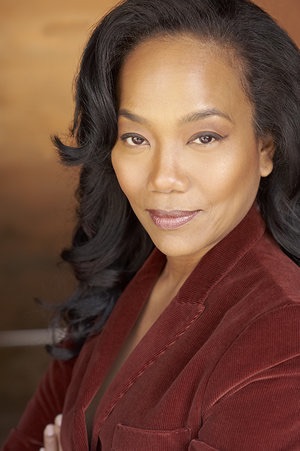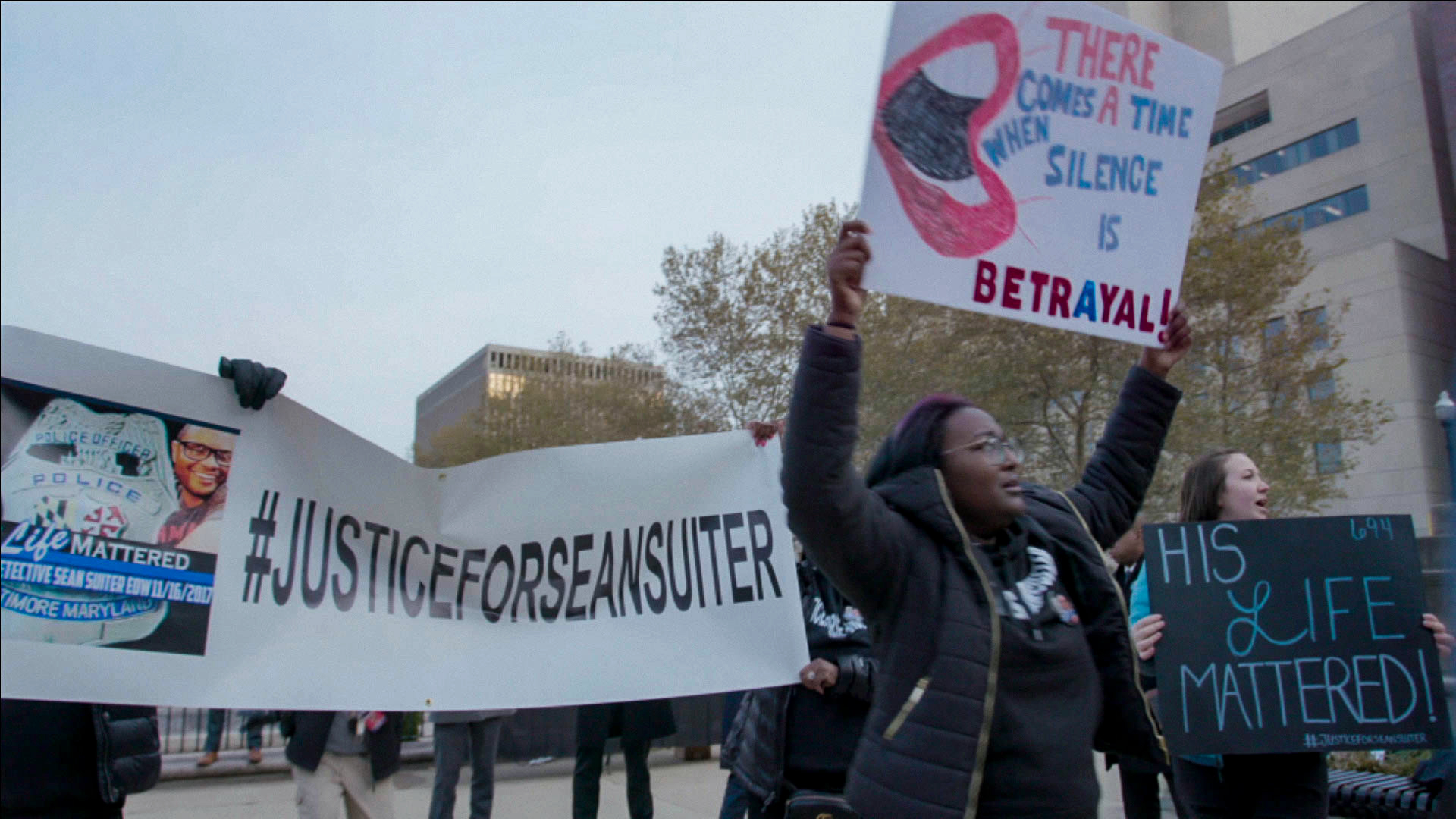The Slow Hustle, which debuts Tuesday night on HBO and HBOMax, looks at the death of Baltimore Police Detective Sean Suiter, who lived in Prince George’s County and who was shot in the head in late 2017, the day before he was due to testify in a federal probe of police corruption. Sonja Sohn, who played Baltimore cop Kima Greggs on The Wire and who founded a Baltimore-based nonprofit, directs the film. It’s her second documentary since 2017’s Baltimore Rising, which chronicled the uprising in Charm City that followed Freddie Gray’s death.
The film follows Suiter’s family as it tries to get answers about his death. It also tracks several local journalists, including Baltimore Sun reporter Justin Fenton and Salon editor-at-large D. Watkins, while they parse the investigation into Suiter’s death to its official and—to many, including Suiter’s family—unsatisfying conclusion. Washingtonian spoke with Sohn last week about her new joint.
What brought you to this story?
I was asked by an HBO executive if I was interested in pursuing this topic, if maybe there was a certain kind of perspective or access that I had to offer. I did not want to initially direct another film that involves law enforcement. But after meeting [Suiter’s wife] Nicole, and beginning to see that there were pieces missing in the investigation of Sean’s Suiter’s death, like—this is a cop. Why isn’t his death solved by now? The more I looked into it, the stranger it seemed.

Engaging the journalists was, I think, one of the better decisions that I made. And that’s also once I found the journalists that were already working on the case, and they were interested in allowing me to follow them. Then I thought, okay, here’s the possibility of actually solving the case.
I think the other thing that really got me was understanding that with this crime not being solved, with this death not being solved, if the police are involved in that, then they’re willing to throw this family under the bus. This beautiful family who is patient and has faith in them, they really don’t care. So to me, that was a microcosm of the macrocosm. When institutions can’t solve their own problems, the people suffer.
You tell the story in a very journalistic fashion. I found it very precise and carefully constructed.
The editor, Donna Marino, she had something to do with that. I want to just give the team credit; they’ve been making documentaries for 30 years. One thing that we all knew is that there were way too many details in this case that were conflicting. What I knew from the get-go was that the crime scene was going to be critical, so there was going to have to be a graphics person on board to help us illuminate some of those details.
It’s not just a complex story: Suiter’s a complex figure, right?
Yes. Yes.
You mentioned the journalists. D. Watkins seems like sort of the soul of the movie, like the Greek chorus stepping in to remind us that there were larger forces at work.
D. is what I would call a true son of Baltimore and a voice of Baltimore. I think you identified it perfectly. I don’t know about the soul, because Nicole is the soul of the film, or maybe Nicole is the heart.
You seem to have had pretty solid access to her and to her family.
You know, it took a minute to gain their trust. They’re a very private family.
Your point about institutions reminds me of the implicit critique from The Wire: That institutions inevitably corrupt people.
That is D.’s perspective within the film. And I think that it’s a very valid perspective, which is why I made sure it was included in the film. There’s a whole philosophical debate around human beings, and, you know, are they inherently good or evil? Do we extend that to law enforcement as well?
Do you have any hope that the investigation into Suiter’s death will get reopened by the city or the police?
Oh, Lord. You’re asking me about the word “hope” at a very particular time in my life, where I’m engaging in a deeper sort of debate around the purpose of the word itself. Ultimately his death is one of hundreds of unsolved deaths in the city. And I have about as much hope that his death will be solved as I do the rest of them. It has nothing to do with my level of desire.



















